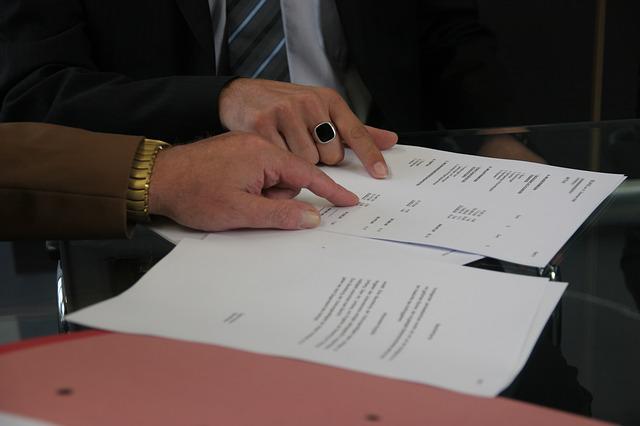
A graduate programme consulting company offers many advantages. This article will provide information about the salary and responsibilities of a graduate programme consultant. It will also provide information on how to get in this type of consulting and why it is a desirable career option. In this article, you can find out more about the job description as well as the salary scale for graduate programme consultants. Listed below are some of the main benefits of working in a graduate programme consulting firm. Continue reading for more information.
Benefits to working in a consulting role as part of a graduate programme
Working in graduate programme consulting is a great way to gain experience and learn from others. As a graduate consultant, you can expect to be able to prepare briefing materials for consultants and conduct interviews with clients. In addition to gaining practical experience, they can also earn certifications that give them an edge in their applications. These are just a few benefits to working in a graduate consultant program.

Opportunities to network – Many graduate programmes offer mentoring opportunities which will allow participants the opportunity to develop relationships within the company. Ben was paired during the graduate programme with a senior member. This provided him valuable work experience in a certain area of business. In the same way, recent graduates are paired with their graduate counterparts by other employers. This helps them in their professional development and career advancement. Graduation programs offer the chance for employees to experience rotation within an organisation. This can be a huge advantage in the long-term.
Consultant for graduate programmes
Graduate consultants are responsible to analyse financial data, identify ways of reducing overheads and increasing profit margins, and also analyze financial data. They can also recommend ways to improve production processes and increase income. Graduate consultants assist in the implementation and evaluation of their strategies. Additionally, they conduct interviews to collect data. These tasks are crucial for a business, especially in a competitive market.
Graduate consultants have the ability to specialize in a broad range of fields such as IT, economics or business, and mathematics. Although a degree in business, economics, geophysics, geophysics, and/or geography is enough, a 2:1 is highly desirable. Graduate trainees with work experience are also highly sought after, as it gives them a competitive edge. They can also apply to positions based in certifications that help them standout from the crowd.
Salary for a Graduate Programme Consultant
The salaries of graduate programme consultants vary from one country or the other. Germany, for instance, pays 23% higher than the UK. The Middle East, however, only pays slightly more. Salaries in the UK are higher than elsewhere because UK graduates pay more tax than their counterparts in other nations. This can be offset by UK consultants' greater access and ability to attract top talent for a much lower salary.

Graduate employers offer a wide range of benefits including free breakfast, lunch, and subsidised exercise classes. Graduates can move into permanent jobs such as management or technology consulting. Some graduate recruitment agencies are even offering sabbaticals and flexible working arrangements. BCG is one example of a company that offers flexible working arrangements and allows their consultants to work part time during the week.
FAQ
What skills do I need for consulting?
Consultants should be able to communicate effectively and have excellent analytical skills. This is because you could be asked questions or not know what you are doing. You need to be able to manage people quickly and solve problems efficiently.
Communication skills are essential. Most clients expect an answer within 24hrs. If they don’t hear from you within 24 hours, they assume you don’t care. It's important, therefore, to always keep them informed and ensure they understand what is going on.
Why would a company hire consultants?
Consultants provide expert advice on how to improve the performance of your business. Consultants are not there to help you sell products.
Consulting helps companies make better decisions. They provide sound analysis and offer suggestions for improvement.
Consulting often works closely with senior management teams in order to help them understand the steps they must take to succeed.
They offer coaching and leadership training to help employees achieve their highest potential.
They can help businesses reduce costs, streamline processes, and increase efficiency.
What happens after the consultant completes the job?
After the consultant completes their work, he/she will submit a final summary of the results. This report details the project timeline, deliverables, as well any other pertinent information.
You will then review the report to determine if the consultant fulfilled your expectations. If the report does not meet your expectations, you have two options: to request changes or to terminate the contract.
Statistics
- Over 50% of consultants get their first consulting client through a referral from their network. (consultingsuccess.com)
- According to IBISWorld, revenues in the consulting industry will exceed $261 billion in 2020. (nerdwallet.com)
- WHY choose me: Why your ideal client should choose you (ex: 10 years of experience and 6-week program has helped over 20 clients boost their sales by an average of 33% in 6 months). (consultingsuccess.com)
- My 10 years of experience and 6-step program have helped over 20 clients boost their sales by an average of 33% in 6 months. (consultingsuccess.com)
- So, if you help your clients increase their sales by 33%, then use a word like “revolution” instead of “increase.” (consultingsuccess.com)
External Links
How To
What does a typical consultant's day look like?
A typical day will vary depending on the type of work you are undertaking. You will be spending time researching, planning new ideas, meeting with clients, and creating reports.
Clients will often meet with you to discuss their problems. These meetings may be over the phone via email, on-line, or face-to–face.
You may also be asked to prepare proposals, which are documents outlining your ideas and plans for clients. These proposals will be presented to clients by you and a mentor.
After all the preparation, you'll need to start creating content. For example, you could be writing articles, designing websites, creating videos, editing photos, or conducting interviews.
You may need to conduct research depending on the scope of your project to find relevant statistics and figures. This could include finding out how many customers your company has and whether they purchase more than one product.
After gathering enough information, you can present your findings to clients. You may give your findings orally or in written form.
After your initial consultation with clients, you need to keep in touch. You might contact them regularly to check on their progress or send them emails to confirm they have received your proposal.
While this can be a slow process, it's essential to remain focused and maintain good working relationships with clients.